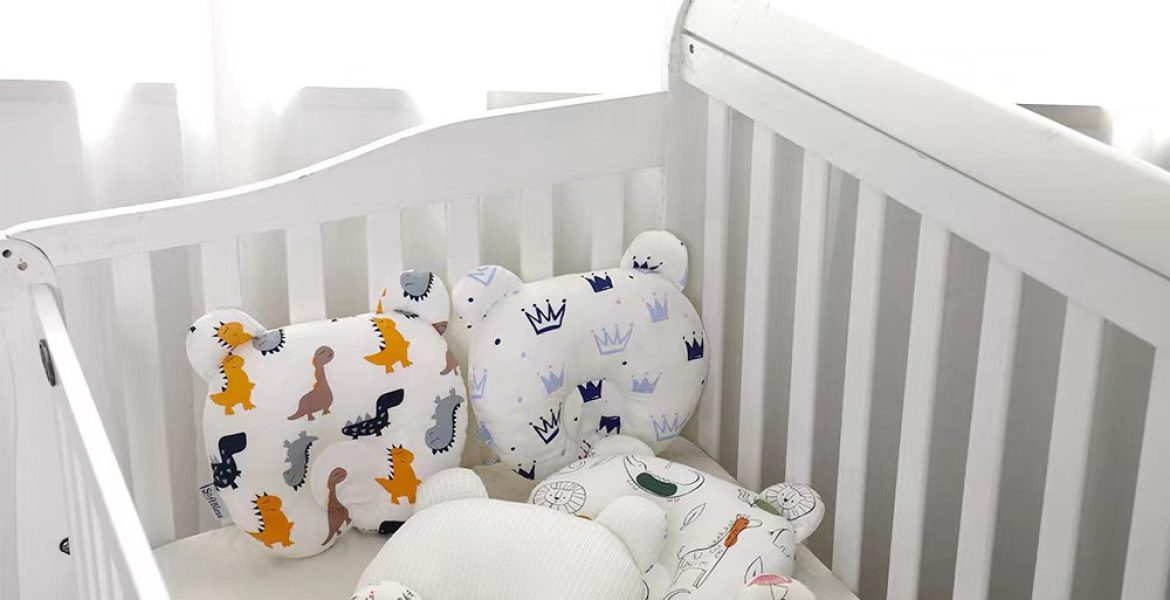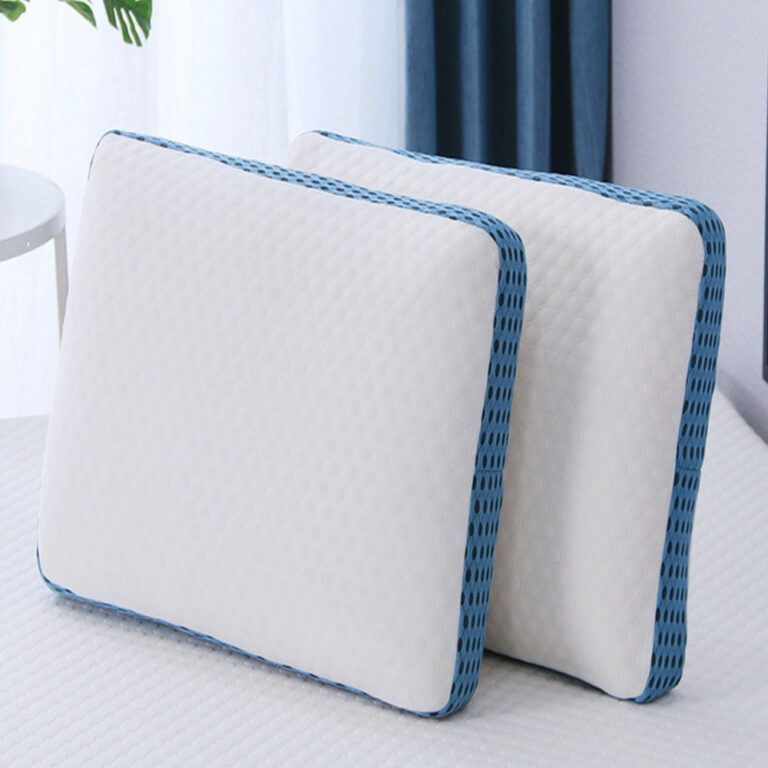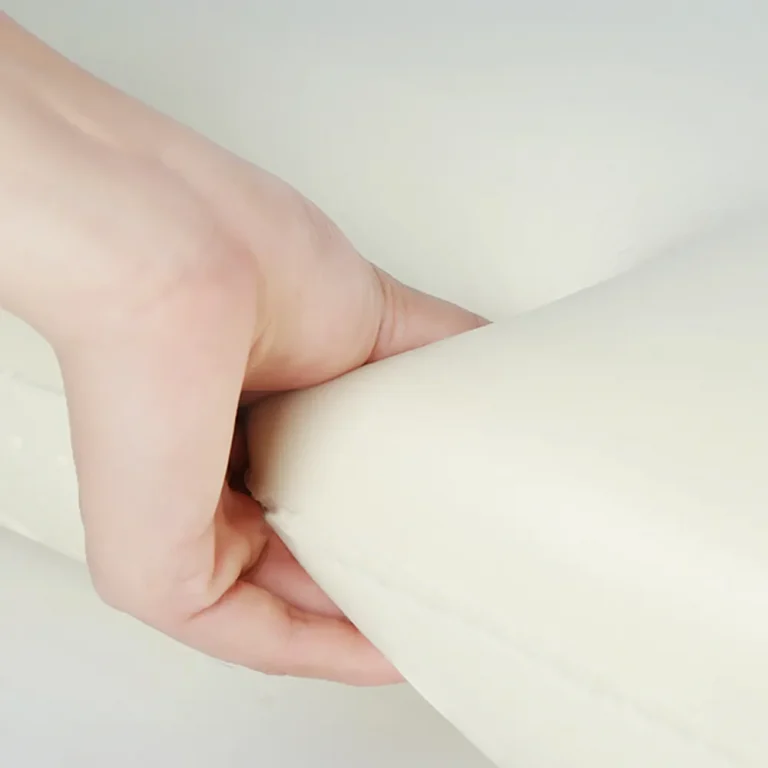Choosing the right pillow for your baby is more than just a matter of comfort. It’s a crucial decision that impacts their safety, sleep quality, and overall well-being. In this comprehensive guide, we will delve into the essential considerations for selecting the perfect pillow for your baby, offering insights and tips to make this important decision easier and more informed.
Understanding the Importance of Choosing the Right Baby Pillow
Why It’s More Than Just Comfort
When it comes to your baby’s sleep, comfort is important, but safety is paramount. A good pillow can provide both, enhancing your baby’s sleep experience while ensuring they are safe throughout the night.
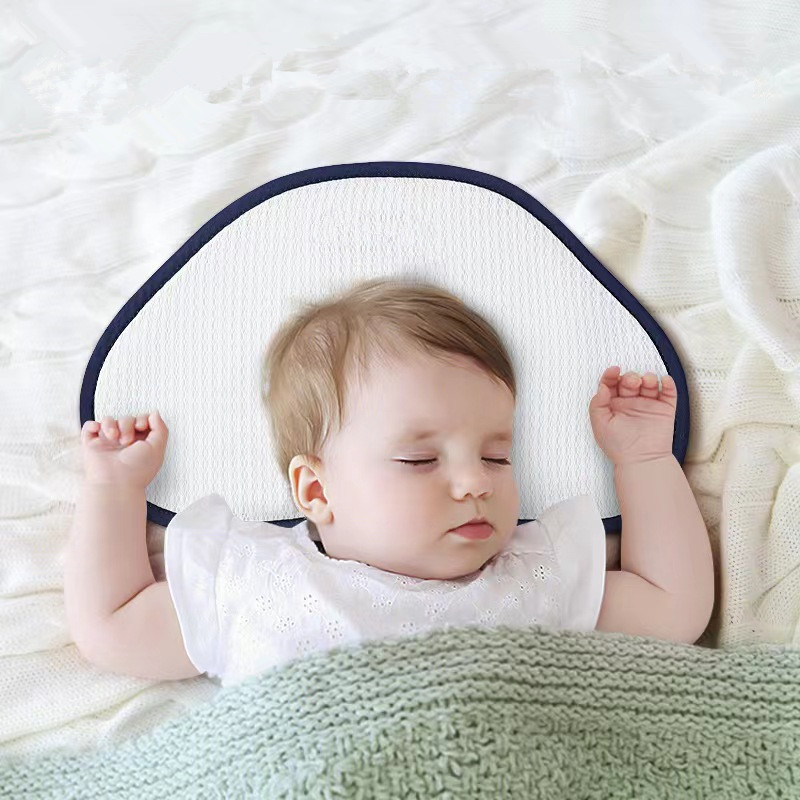

The Link Between Sleep Quality and Development
Quality sleep is vital for your baby’s growth and development. The right pillow can support this by providing a comfortable and supportive sleeping environment, promoting better sleep patterns.
Key Factors to Consider When Choosing a Baby Pillow
1. Material: What’s Best for Your Baby?
a. Natural vs. Synthetic Fabrics
Opting for natural materials like organic cotton can be gentler on your baby’s skin and less likely to cause allergic reactions. Synthetic materials, while often more affordable, may not offer the same level of breathability or comfort.
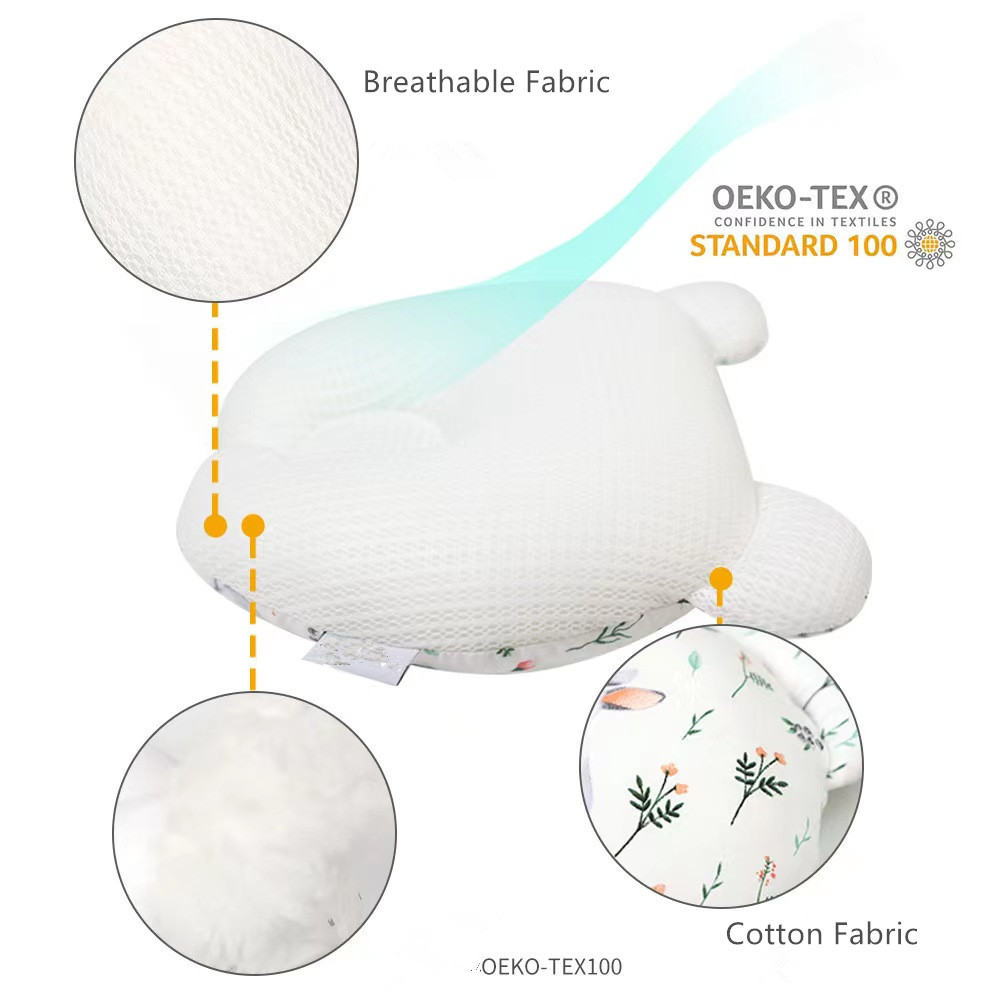

b. Hypoallergenic Options
For babies with allergies or sensitive skin, hypoallergenic pillows can be a game-changer, reducing the risk of irritation and allergic reactions.
2. Size and Shape: Finding the Perfect Fit
a. Appropriate Size for Your Baby’s Age
The size of the pillow should be appropriate for your baby’s age and size. A pillow that’s too large can be a safety hazard, while one that’s too small may not provide adequate support.
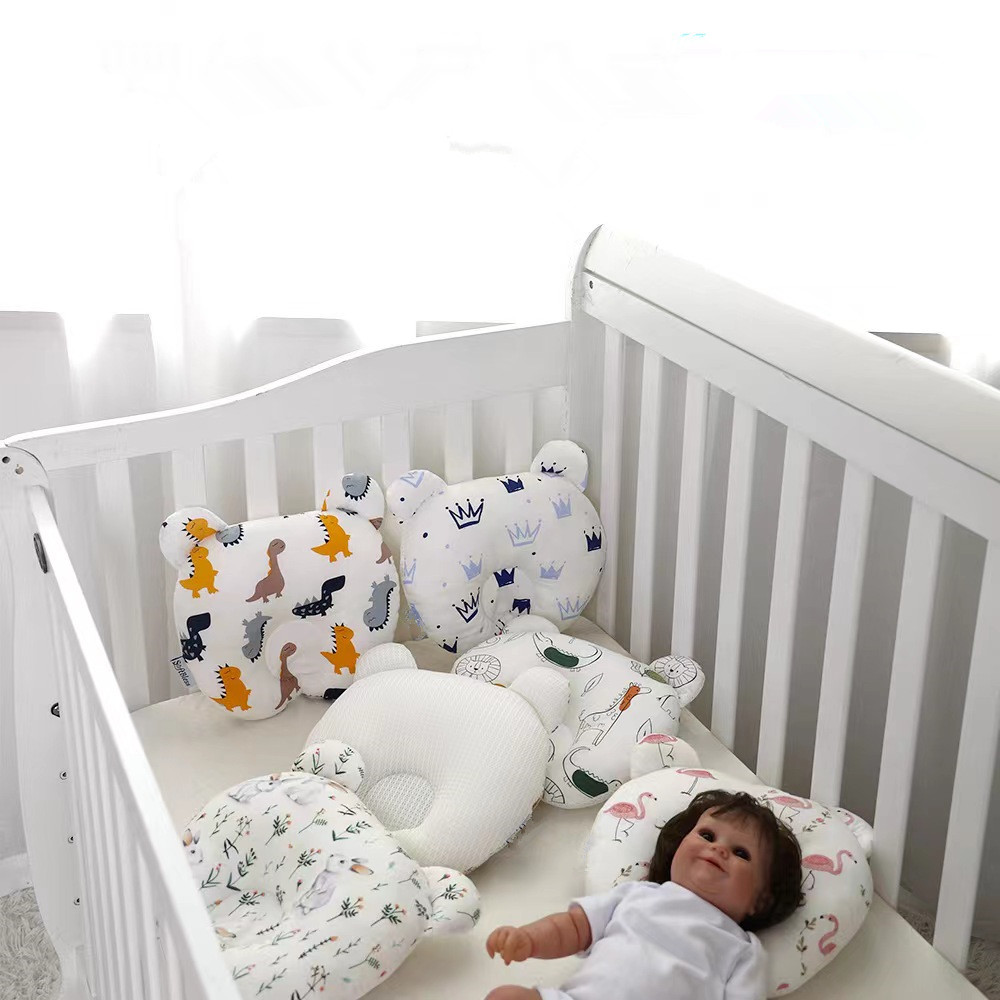

b. Contoured Designs for Added Support
Some pillows come in contoured designs that can provide additional support for your baby’s head and neck, promoting better spinal alignment.
3. Firmness: Balancing Comfort and Support
a. The Role of Firmness in Safety
A firmer pillow is generally safer for babies as it reduces the risk of suffocation. However, it should not be so firm that it becomes uncomfortable.
b. Adjusting Firmness as Your Baby Grows
As your baby grows, their pillow needs may change. Be prepared to adjust the firmness of the pillow to accommodate their evolving needs.
4. Safety Standards and Certifications
a. Certifications to Look For
Look for pillows that meet safety standards and certifications. This can include certifications for non-toxic materials, flame retardants, and overall product safety.
b. Avoiding Pillows with Loose Parts
Pillows with ribbons, buttons, or other loose parts can be a choking hazard. Always choose a pillow with a smooth, seamless design.
Tips for Introducing a Pillow to Your Baby’s Sleep Routine
1. The Right Time to Introduce a Pillow
Most experts recommend waiting until your baby is at least 18 months old before introducing a pillow. Before this age, a pillow isn’t necessary and can pose a safety risk.
2. Monitoring Your Baby’s Response
When you first introduce a pillow, monitor your baby’s response to ensure they are comfortable and safe. Look for signs of discomfort or difficulty sleeping and adjust accordingly.
Common Mistakes to Avoid When Choosing a Baby Pillow
1. Overlooking the Importance of Breathability
A breathable pillow can help regulate your baby’s temperature during sleep, reducing the risk of overheating.
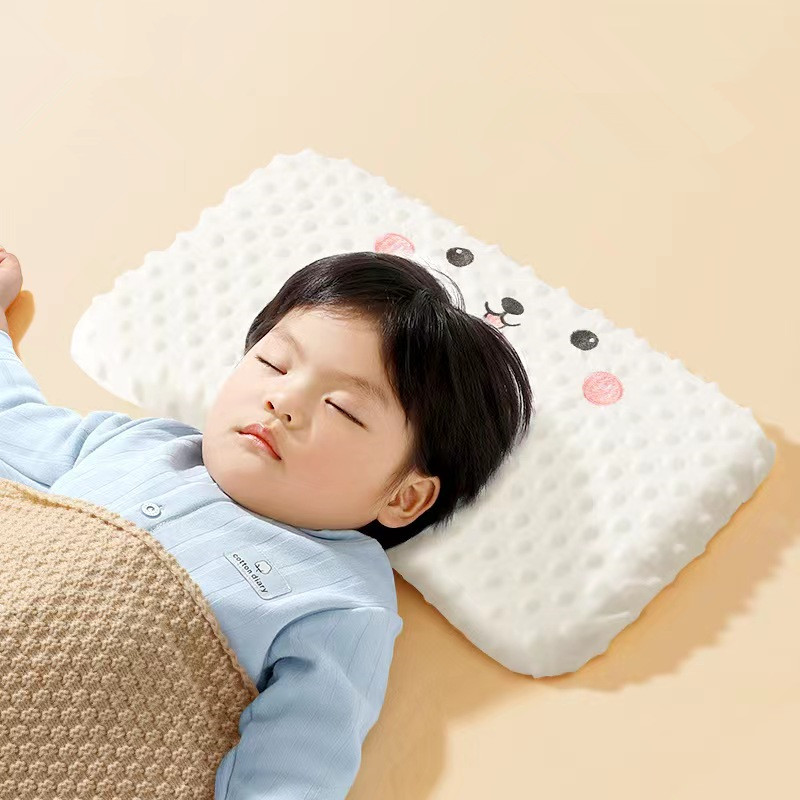

2. Compromising on Quality for Price
While budget is always a consideration, don’t compromise on quality when it comes to your baby’s pillow. A higher-quality pillow is often safer and more comfortable.
Summary
In conclusion, choosing the right pillow for your baby is a decision that combines considerations of comfort, safety, material, size, shape, and firmness. By keeping these factors in mind, you can select a pillow that not only ensures a good night’s sleep for your baby but also supports their healthy growth and development.
FAQs
- At what age can I introduce a pillow to my baby’s crib? Most experts recommend waiting until your baby is at least 18 months old before introducing a pillow to their crib.
- What materials are best for a baby pillow? Natural materials like organic cotton are generally preferred for their breathability and gentleness on sensitive skin.
- How do I choose the right size and shape of pillow for my baby? Choose a pillow that’s appropriate for your baby’s size and age. Contoured designs can offer additional support for the head and neck.
- What should I look for in terms of safety certifications? Look for pillows that meet safety standards and have certifications for non-to
